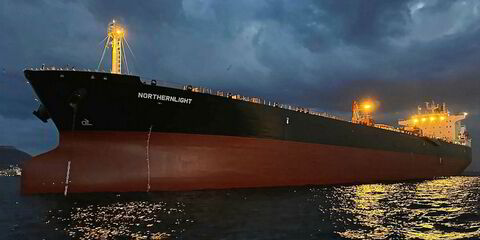The vessel’s owner, New York-listed Euroseas, and two of three companies in the charter chain remained locked in a three-way dispute over the contracts impacted by the Eleni P’s time in captivity off Somalia.
London arbitration is set to continue raging after a UK judge recently issued a ruling affirming the composition of the tribunal hearing the case.
When hijackers nabbed the 72,100-dwt Eleni P (built 1997), Athens-based Euroseas had the vessel on time charter to Italy’s Deiulemar Shipping, which in turn had subchartered the ship to Holland’s Transgrain, according to court records. Transgrain further sublet the ship to Ukraine’s Vista Shipping, a shipowner and operator controlled by Viktor Baranskiy’s embattled Palmira Group.
In the arbitration dispute, Euroseas has been pursuing a $5.56m claim against Transgrain for charter hire during the hijacking and Transgrain is in turn chasing Vista.
A little more than a month after a ransom released the ship, all three charterers in the chain redelivered the ship on the same day in January 2011, according to a ruling by Justice Nigel Teare of the High Court’s Queen’s Bench Division in London.
A year later, Transgrain started arbitration against Deiulemar and Vista, and Euroseas-controlled single-vessel owner Eleni Shipping did the same against Deiulemar, whose claims were eventually taken over by Euroseas after the Italian company collapsed into bankruptcy in 2012.
All the charter contracts had the same terms but they had clauses that called for conflicting arbitration tribunal compositions. Transgrain insisted that the tribunal should be made up of the London Maritime Arbitrators Association (LMAA)’s Graham Clark and Bruce Buchan, while Deiulemar insisted on a tribunal made up of Clark and David Farrington. The arbitrators decided that all three should be on the body.
“By March 2014, the resolution of those disputes had progressed as far as asking the arbitral tribunal to make findings as to who the arbitrators were and who the parties were,” wrote Teare.
But Transgrain turned to the courts to insist that under the conflicting charter terms, the arbitration body should be made up of two arbitrators and a referee, rather than a simple three-arbitrator panel.
Last month, Teare disagreed, upholding the tribunal’s decision.


